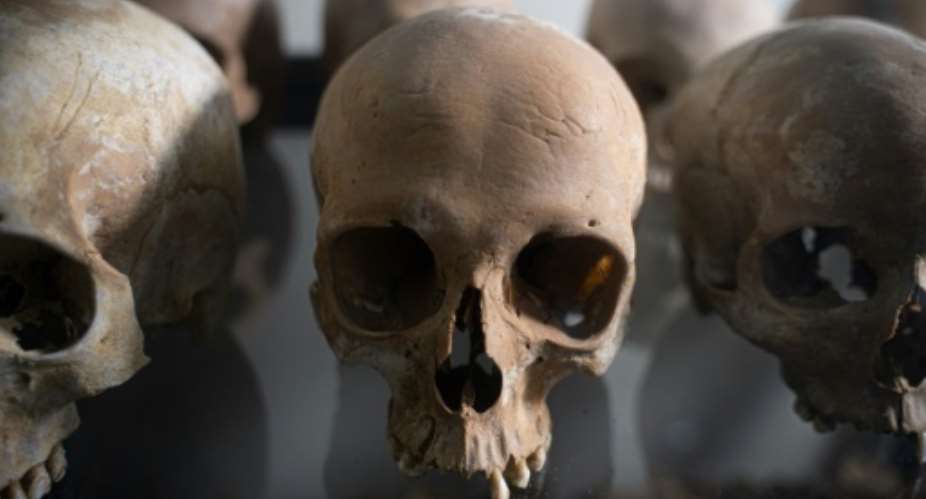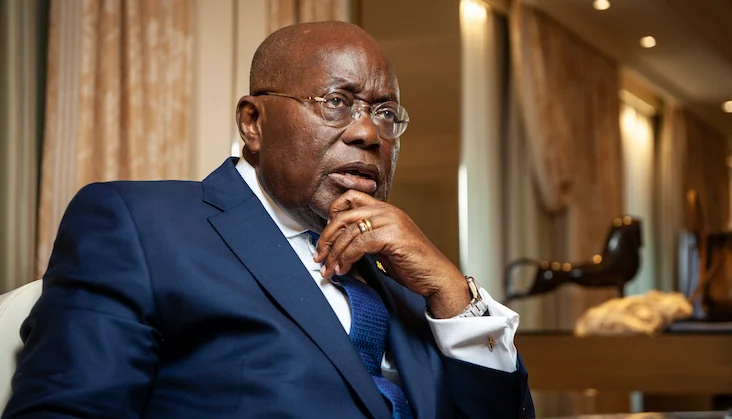The findings of an official French commission that Paris bears overwhelming responsibilities in the 1994 Rwandan genocide created little surprise in Kigali on Saturday, but there was a ray of hope for future ties.
"Only France did not know of its role," said MP John Ruku-Rwabyoma.
"But the whole world, especially Rwandans, knew."
The commission of historians set up by President Emmanuel Macron declared a "failure" on the part of France over the genocide that saw around 800,000 people slaughtered, mainly from the ethnic Tutsi minority.
After years of accusations France did not do enough to halt the massacres, the MP urged the French government to make a "clear apology".
"Now the next step for France is to accept that they have to pay reparations to the victims," he added.
With genocide remembrance events starting on April 7, the memorial site in Kigali was full of students, tourists and locals on Saturday.
Jean Dushimimana, 29, was in the genocide museum's section documenting France's role.
"There is nothing that they (France) can pay back for what they did," said the computer engineer whose parents were killed in the massacres.
France "helped the perpetrators that committed the '94 genocide", he said.
Paul Habumugisha, 27, stood nearby and added: "Most young Rwandans are afraid of France because of what we know that they did."
But he said that if Paris had finally accepted its role "it means that France is going to be our friend".
Outside the museum, waitress Josiane Umurerwa said she hoped France's acknowledgement "will also help the victims and those who have lost their loved ones to have peace of mind".
Rwanda officially hailed the findings on Friday as "an important step toward a common understanding of France's role in the genocide against the Tutsi".
The foreign ministry statement said the results from the country's own investigation commissioned in 2017 would be released in the coming weeks and "complement and enrich" the French commission's report.
African Union chief Moussa Faki noted in a tweet that the report was "courageous and worthy of appreciation" and had "established a great number of responsibilities".
It was "an important decision in the service of truth about the most dramatic event in contemporary African history".
The genocide between April and July of 1994 began after Rwanda's Hutu president Juvenal Habyarimana was killed when his plane was shot down over Kigali on April 6.
The issue still poisons modern relations a quarter of a century later between the colonial power France and Rwanda under President Paul Kagame, a former Tutsi rebel in power since the aftermath of the genocide.
France led Operation Turquoise, a military-humanitarian intervention under a UN mandate in June 1994. Critics say it was in reality aimed at supporting the genocidal Hutu government.
For Macron the report brought "considerable progress" in understanding France's role in Rwanda from 1990 to 1994.
The Elysee said it hoped it would mark an "irreversible" reconciliation process between the two countries.





 Mahama was a one-term president because he was incompetent and brought untold ha...
Mahama was a one-term president because he was incompetent and brought untold ha...
 Shortage of ‘bentua’ hits Accra Central Market
Shortage of ‘bentua’ hits Accra Central Market
 Blame IMF programme for Cedi's decline —Prof Bokpin
Blame IMF programme for Cedi's decline —Prof Bokpin
 Court denies Kasoa soldier killer bail
Court denies Kasoa soldier killer bail
 All crooked deals are cooked at Jubilee House – Franklin Cudjoe
All crooked deals are cooked at Jubilee House – Franklin Cudjoe
 Don’t be tricked by Mahama’s rebranding move – Richard Ahiagbah to Ghanaians
Don’t be tricked by Mahama’s rebranding move – Richard Ahiagbah to Ghanaians
 Petition against Kissi Agyebeng not surprising – Justice Srem Sai
Petition against Kissi Agyebeng not surprising – Justice Srem Sai
 Akufo-Addo’s handling of petitions against top officials disappointing – Justice...
Akufo-Addo’s handling of petitions against top officials disappointing – Justice...
 Osino: ‘Sleeping’ tipper truck driver runs into building
Osino: ‘Sleeping’ tipper truck driver runs into building
 Ahmed Suale's killers will be brought to justice no matter how long it takes - A...
Ahmed Suale's killers will be brought to justice no matter how long it takes - A...
